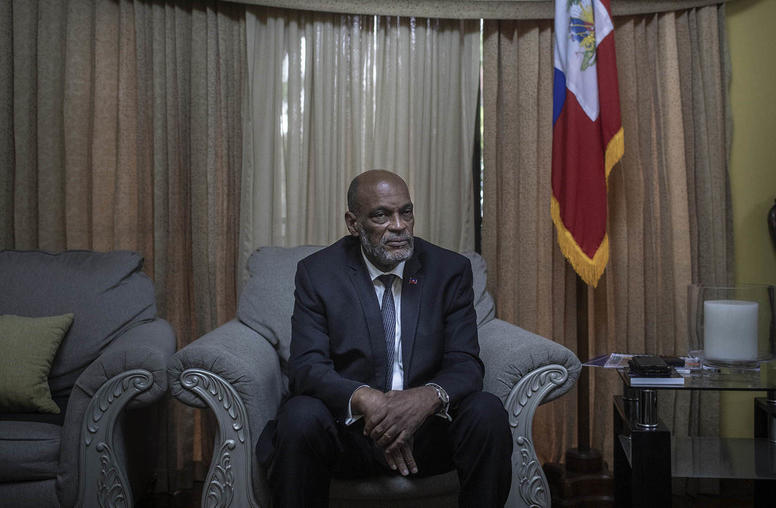 Global Policy
Global Policy
The U.S. Institute of Peace convenes officials and policy experts, influences high-level debates, and works with other institutions, government and civil society groups to discuss and develop better strategies that will prevent, mitigate or resolve violent conflict. Among the institute’s global policy priorities are the problem of fragility—when a state is vulnerable to violent conflict because government is unwilling or unable to address its citizens’ needs—and the need to better connect humanitarian relief, security sector assistance, political action and longer-term development aid.
Featured Publications

What Haiti Needs from the U.S. and International Community
Despite obvious distractions from crises in other corners of the world, Haiti’s deepening disaster is belatedly drawing wider international attention. Critics of U.S. policy toward Haiti are emerging from all corners of the political spectrum — and there is much to be critical of, particularly if the timeframe is stretched to cover Haiti's political experience since the late 1980s and the transition from the Duvalier dictatorships. But in the here and now, these assessments short charge the admittedly tough odds of the most recent Caribbean Community- (CARICOM) managed mediation efforts from which has emerged Haiti’s Presidential Council, a transitional governance structure for the country.

In Russia’s Hybrid War on Europe, Moldova’s Critical Next 15 Months
A rising risk in southeast Europe is Russia’s sharpening of conflicts to block Moldova’s effort to join the European Union. The Kremlin is escalating a hybrid campaign to manipulate three Moldovan elections over the next 15 months. Moscow last week hosted the formation of a political bloc around its primary Moldovan ally, a fugitive billionaire convicted of the country’s worst-ever bank fraud — and sent a startling flood of pre-election cash that police seized at Moldova’s main airport. This is a critical season for Moldova’s democratic allies to help it defeat Russian disinformation and election subversion.

Nine Things to Know About Myanmar’s Conflict Three Years On
On March 28, 2021, barely two months after the February 1 coup in Myanmar, a minor skirmish erupted at the Tarhan protest in Kalay township in central Sagaing region as demonstrators took up makeshift weapons to defend themselves against ruthless assaults by the junta’s security forces. This was the first recorded instance of civilian armed resistance to the military’s violent crackdown on peaceful protesters since the February 1 coup d’état.
Current Projects
Transnational Organized Crime in Southeast Asia
Over the past decade, Southeast Asia has become a major breeding ground for transnational criminal networks emanating from China. USIP assembled a senior study group to assess one of the most pernicious aspects of such criminality: rapidly spreading, industrial-scale scam compounds that rely on forced labor lured from around the world. The senior study group convened four meetings to share research and information on the trends, dimensions and character of the criminal networks operating the scam compounds and developed recommendations for countering their malign effects.

Critical Minerals in Africa
Often throughout Africa’s history, natural resource exploitation has brought devastating consequences. However, it’s clear that Africa’s critical minerals will be developed regardless of the risks. The question is: How will critical minerals be developed and to whose benefit?

Crisis in Haiti
Analysis of Haiti’s deepening crisis, its implications for regional peace and security, and policy options for the United States to consider.